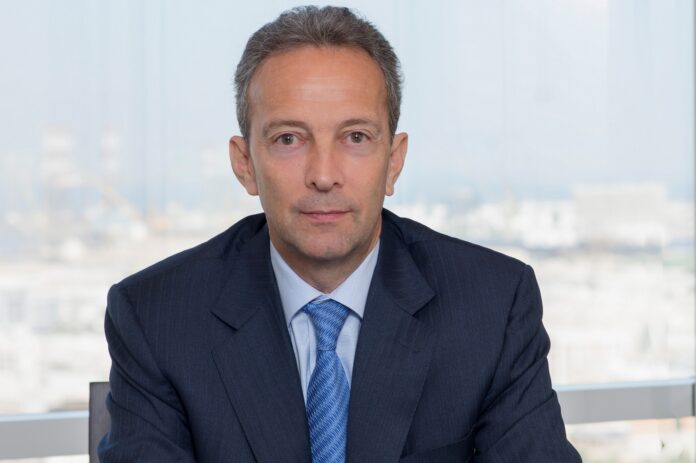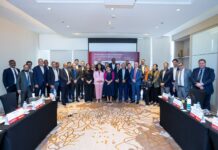
What is driving many of the world’s HNW and UHNW families across the Middle East to explore different options for managing their wealth?
At Lombard Odier, we are seeing a virtuous circle of political, demographic and technological developments combining to drive greater choice and flexibility for HNW investors across the region.
The Gulf Cooperation Council (GCC) countries has taken great strides to implement initiatives that foster a well-regulated and effective wealth management industry. Meanwhile, central banks, regulators and financial authorities are increasingly collaborating to create a dynamic ecosystem that is providing investors with ever more flexible wealth solutions.
At the same time, the next generation of HNW investors are more sophisticated, technologically literate and are inclined to challenge received wisdom. They want to leverage more tools in the investor toolkit to diversify their investments in the face of increasing market volatility. Over the last two years, we have seen ongoing investment in both traditional and alternative growth assets such as private equity, as well as more risk-controlled strategies such as ETFs and tracker funds. Investors are also exploiting the full spectrum of sectors and geographies, including emerging markets and sustainability-focused opportunities.
Finally, digital tools are empowering clients to take greater participation in their investments. Investors can gain a deep understanding of their portfolio positioning with ease. For example, our ‘My LO’ banking app allows clients to view and manage their assets across multiple accounts and countries. Clients can also access the most recent research and engage directly with their wealth advisors. Moreover, financial modelling tools such as our MyWealthOutlook allow clients to co-create truly personalised, forward-looking wealth solutions structured around their particular goals.
How are GCC wealth management services changing to meet growing demand?
The wealth management industry is adapting rapidly to meet growing demand, both in terms of expertise and proximity. Until recently, financial advisors based in either the West or Asia would travel to the region to service their clients. Today, investors are choosing advisors based in the region who are closer to their contacts, more agile in the way they interact with investors and who have a deeper understanding of their clients’ needs and values.
Wealth management is becoming an increasingly integral part of the financial ecosystem of GCC countries, and this trend is accelerating exponentially. More and more wealth management firms are registering locally. In the UAE, the number of new firms registered in both financial centres – the ADGM and DIFC – increased significantly in 2022.
Local wealth advisors are also growing in their expertise, adding global value to the service offered to investors in the region. Both the ADGM and DIFC have introduced innovative measures to provide investors with diversifying opportunities and greater liquidity, from new, alternative assets and securities to green finance. An evolving regulatory framework is also facilitating access to emerging investment opportunities such as tech, fintech and more recently, virtual assets. Wealth managers with a local presence and a global investment expertise will be able to leverage these developments, offering clients the benefits of both scale and a highly personalised client service.
Are regional wealth management centres moving toward parity with established global wealth hubs?
It takes time to create a luxury brand. However, regional wealth management centres in the region are moving in the right direction to achieve parity in terms of service quality and regulation relative to their established counterparts.
Indeed, it’s likely that some GCC financial hubs will become even more attractive than their international peers. This is due to the high degree of flexibility that they have demonstrated in recent years, as well as a positive mindset, nimble decision making, financial strength and a business-oriented approach.
This positive trend is moving in lockstep with a rigorous approach to regulatory matters. This will also help GCC hubs to gain an international reputation and expand even further in the years to come.
How are clients’ needs or values changing as newer generations settle into HNW brackets?
We are finding that interest for Islamic investments is as high among younger HNW investors in the region as their older counterparts. Indeed, our recent survey of 300 HNW business owners across the region[1]confirms that allocations to Islamic equities and sukuk are set to rise. Most continue to identify with their Middle Eastern heritage and still adhere to a formal system of familial governance. Most also have a strong regional focus and intend to keep their assets in the region.
As a result, we are seeing increasing demand for our Islamic services, which we have offered to our clients in the region for more than ten years. Our Shariah-compliant discretionary mandate falls within our long tradition of social responsibility and the resulting ability to develop sustainable and responsible investment solutions.
However, we are also seeing that young investors are more influenced by western values. We are seeing greater appetite for technology, global equities and private market investments. Younger investors also prioritise different outcomes for their wealth and investments, with a greater focus on improving their lifestyle and remaining wealthy compared to older investors who are more interested in their financial and reputational legacy.
How frequently do clients ask you to factor ESG considerations into their investments?
Interest in sustainability is increasing fast for both younger and more established HNW investors, and our survey highlights that the vast majority are planning to rapidly increase their exposures to sustainable investments. Investors want to express their values and their sense of responsibility to the environment and society, but they also understand that sustainability factors will become an increasingly important performance driver. As a result, many investors are looking to integrate ESG factors into their portfolios, receive regular investment research and sustainability investment ideas.
At Lombard Odier, our views are entirely in line with respondents. For us, sustainability is not just a priority, it is an investment conviction. We offer clients a broad range of high conviction sustainability and impact portfolios across asset classes. We also offer a ground-breaking Shariah-compliant ESG equity portfolio for Islamic investors that want to drive positive change. Like the great majority of GCC investors, we share the unwavering conviction that nature is our capital.










